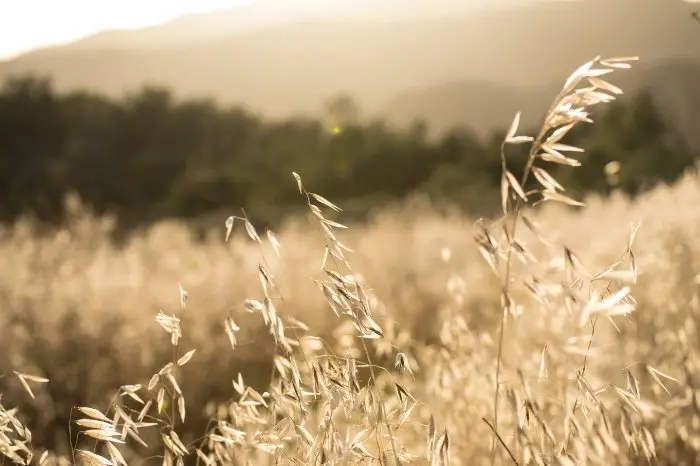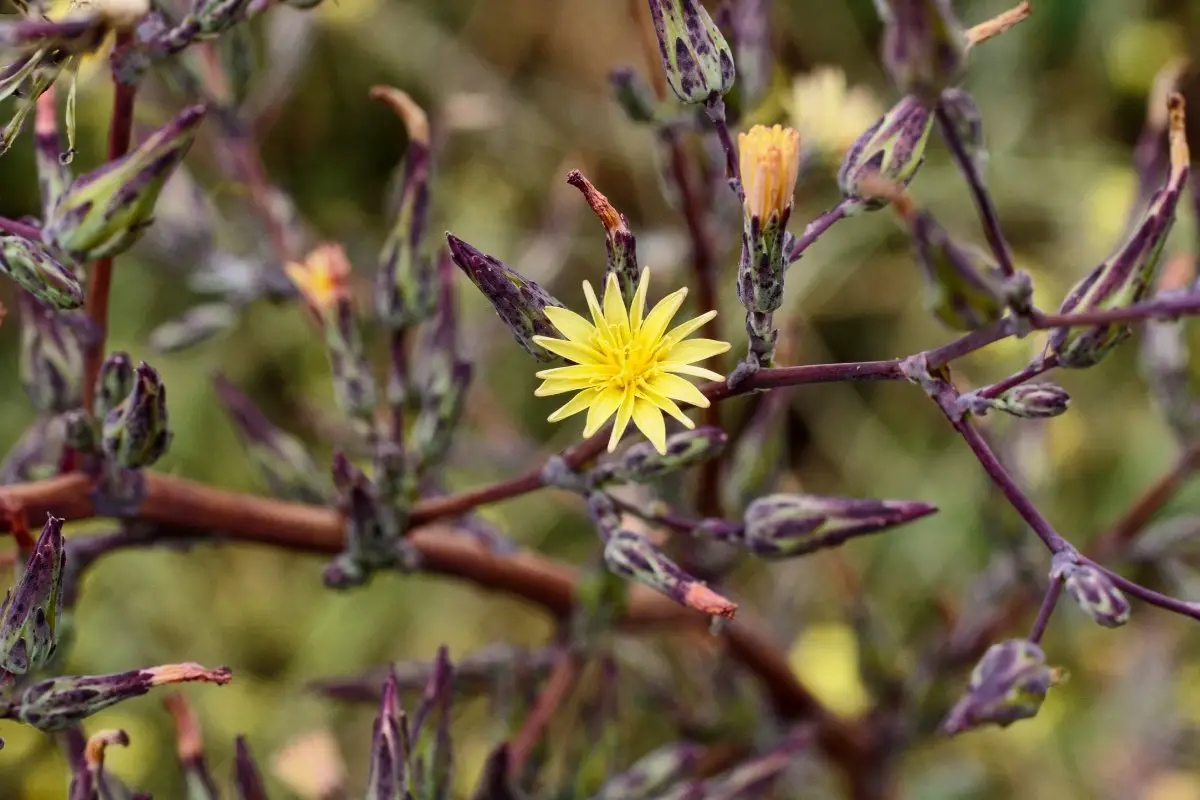Last Updated on January 13, 2022 by Cristina
If you live in Oregon and you’re starting a garden, you’re probably wondering what are the most common weeds in Oregon. Everyone knows that weeds can easily throw unwanted shade upon your plants. In today’s article, we’ll be inspecting Oregon weeds closely, as well as learning how to win the fight against them.
Weeds Of Central Oregon
The most common weeds in central Oregon are the Bur Buttercup, Tumble Mustard, the Common Mallow, the Dandelion, the White Clover, and the Black Medic. Additionally, you can find Cheatgrass, Prickly lettuce, Mouseear Chickweed, Russian thistle, and common groundsel.
Many of these weeds are actually invasive species. Cheatgrass, for example, is originally from the Mediterranean. This weed is actually a fire hazard once it’s mature. Experts recommend that you simply pull it out or hoe it out before it starts producing seeds to clear it out.
The Tumble Mustard is a very tall weed – it’s possible for it to grow to the height of three feet. This weed begins its life very close to the ground. Experts recommend that you simply pull the seedlings to stop them from growing.

The Bur Buttercup is one of the most common weeds on this list. It grows very low and it has light-green leaves with small white hairs. Experts recommend that you control the growth with herbicide or hoeing.
The Black Medic is one of the more common Oregon lawn weeds. You can easily identify it by its leaves in the shapes of teardrops and its yellow flowers. In most areas, this is an annual weed – but it can survive for multiple seasons in warmer climates. This weed is a good indicator of compacted soil! If you find Black Medic growing in your garden or on your lawn, you should work on your compact soil – not just spray herbicides all over.
The Russian Thistle is another annual weed you can often find in Oregon. You’re more likely to find it in dry areas, where they often dry up and become a fire hazard! Since these weeds reproduce by seed, destroying young weeds is the best way to stop the spread.
Managing Weeds
The key to managing weeds is understanding the individual plant. This begins by identifying them! Weed identification in Oregon shouldn’t be too difficult, as the weed population isn’t that high nor is it too diverse. Luckily, you can simply take care of most weeds, and most of them don’t pose a threat to your lawn or garden.
Keep in mind that if you only have a few weed plants, your lawn most likely isn’t in any trouble. Also, know that weeds don’t grow without reason. Similar to how the Black Medic only grows in compacted soil, there are other weeds that require specific conditions to grow. Because of this, weeds can be useful indicators of problems in your lawn.
Corona GT 3040 Clipper GT3040 Extendable Handle Weeder
Controlling Weed Through Culture Control
Once you’ve successfully identified weeds, you can develop a plan on how to eradicate them. Even though some gardeners jump at the opportunity to use a herbicide, this isn’t always the best idea. Using herbicides is an invasive technique, while many gardeners point out that changing the methods of lawn culture control might be the better option.
What does this mean? Well, there are many things you can change regarding the way you handle your garden and your lawn. You can raise or lower the mowing height or change the time of mowing. Making changes to your watering schedule might also prove effective. A lot of gardeners also prefer pulling the weeds by hand instead of using herbicides.
You can hand-weed the weeds with tools or by hand and it’s best to do it after rain. Even though culture control has its benefits, sometimes you might need to pair it with using herbicides for the best results.
Controlling Weed by Herbicides
Herbicides are the go-to solution for many gardeners, and that’s not without question. Pairing them with cultural control methods can prove to be very effective if you’re looking to eradicate weeds.
Using preemergence herbicides can be very useful against annual weeds. Most of the weeds you see in your garden or lawn are annual weeds. This herbicide will kill the root that’s only starting to emerge, only after the seed starts to grow. This herbicide only affects seeds that have germinated, which is why you have to apply it before the seeds start to germinate.
Then, we have postemergence herbicides. These herbicides are used after the weeds have developed and the weeds absorb them through the leaves. It’s best to apply them when the leaves are young and when the weeds are still actively growing. However, it’s very important to understand that these herbicides could easily damage grass, plants, and trees if you expose them to the herbicide. Because of this, experts recommend that you take great care if you decide to use postemergence herbicides.
If you decide to use herbicides, make sure that you use them responsibly. Every herbicide has instructions printed on the label, and it’s crucial to apply them at the right time. Most gardeners agree that it’s best to use herbicides in the fall to control weeds. During this time, all plants are preparing for winter and they’ll readily take up the herbicide once it comes in contact with the weed. Because of this, a one-time application of herbicide is usually more than enough to take care of the weeds.
Conclusion
In summation, the most common weeds in Oregon are the Black Medic, Cheatgrass, the Bur Buttercup, the Dandelion, the Tumble Mustard, and the Russian Thistle. These weeds can grow more or less on any law or in any garden. If you’re looking for a way to control their growth, know that most experts recommend combining the use of herbicides with culture control of various methods.
That means the height and the frequency of mowing and watering, as well as timing the use of herbicides. A lot of weeds can also be an indicator of a deeper problem, in which case you should look to fix that problem, not just get rid of the weed.


